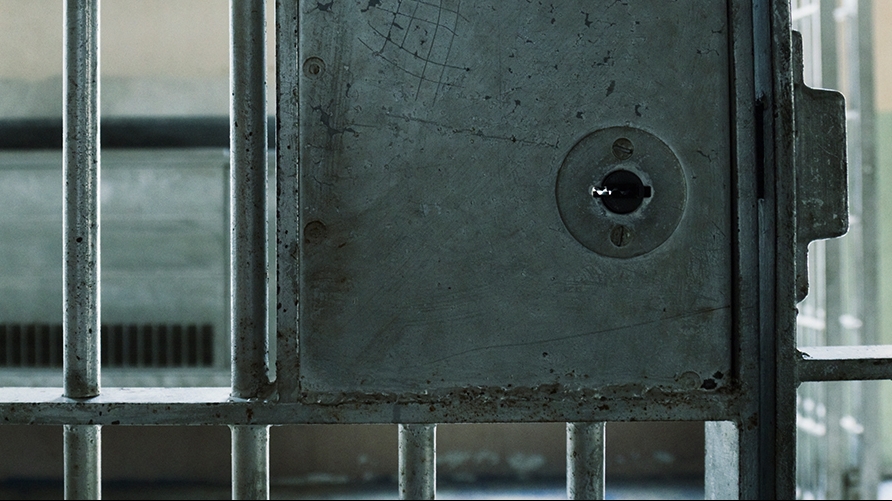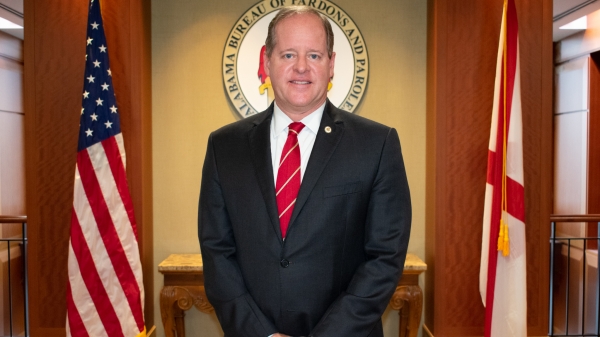By Chip Brownlee
Alabama Political Reporter
MONTGOMERY — The Southern Poverty Law Center, a Montgomery-based civil rights legal organization, doesn’t believe Gov. Robert Bentley’s plan to build four new prisons to replace Alabama’s aging corrections infrastructure solves the State’s underlying problems.
Bentley and Corrections Commissioner Jefferson Dunn plan to push for the Prison Transformation Initiative again during the upcoming legislative session, set to begin on Feb. 7. The plan, if authorized by the Legislature, would have the State borrow $800 million to pay for three new men’s prisons and a new women’s prison.
But according to the SPLC simply build new faculties doesn’t solve the problems of understaffing and inadequate health care. The SPLC is currently litigating a lawsuit alleging that the State is deliberately indifferent to prisoners’ mental health needs.
“There is no question that Alabama needs to improve its prison facilities,” said Ebony Howard, SPLC associate legal director. “But spending $800 million on four new prisons will not fix the grossly inadequate medical and mental health care, the ongoing staff shortage or the unspeakable levels of violence.”
Beginning in December, the SPLC began arguing a case in federal court intended to show that the Alabama Department of Corrections “fails to ensure that incarcerated people with mental health needs get constitutionally adequate care.” The case is a class-action lawsuit brough on behalf of more than 25,000 disabled Alabama inmates. It was filed in 2014 by the SPLC and the Alabama Disabilities Advocacy Program.
On Monday, SPLC lawyers summarized the evidence they presented in court over the past eight weeks. ADOC employs too few mental health and custody personnel, and that many lack needed qualifications, the SPLC said.
“When it comes to the delivery of mental health care in Alabama prisons, there is no system,” said SPLC senior staff attorney Maria Morris, lead counsel in the case. “The state fails to provide adequate care from the minute a person enters its custody until they leave. This failure not only creates inhumane conditions, it puts the lives of both correctional officers and prisoners at risk.”
According to the evidence presented, ADOC fails to identify and assess needs, fails to properly provide and monitor medication and fails to provide adequate psychotherapy services. Additionally, the prison system segregates those with mental health problems into units where they are often denied the care they need, SPLC said.
Bentley and Dunn’s plan will consolidate the State’s 16 major correctional facilities into six and significantly reduce overhead costs, Dunn has said. The four new facilities will utilize a design-build plan that requires few correctional personnel to operate.
The plan, though it is intended to reduce overcrowding and reduce the number of staff needed, doesn’t address the mental health concerns of the SPLC and doesn’t provide any rehabilitation programs intended to reduce recidivism rates, the SPLC said.
“The vast majority of people in Alabama’s prisons will return to their communities,” Howard said. “If the State is serious about public safety, it must adequately staff its facilities and focus on providing the treatment programs and opportunities that reduce the likelihood that people will reoffend. It’s time for Alabama to fully embrace commonsense reforms that will reduce prison and jail populations, stop wasting tax dollars and enhance public safety.”
Last month, Jamie Wallace, a 24-year-old Alabama inmate, was found dead in his cell at Bullock Correctional Facility. Wallace testified in the mental health trial less than two weeks before his death and had been released from suicide watch only two days earlier.
During his testimony, Wallace said that some corrections officers enabled his suicidal actions by providing him with a razor.
According to the SPLC, ADOC maintains no “meaningful suicide prevention program.” The prisons do not conduct any suicide risk assessments, does not have enough monitoring and counseling staff and fails to follow-up with those deemed suicidal.
Alabama’s prison suicide rate is more than twice the national average, according to the SPLC.
Following Wallace’s suicide, ADOC agreed to increase monitoring of suicidal inmates. The agreement also says that ADOC will hire more mental health professionals for the mental health program, that any person determined to be “acutely suicidal” will be constantly watched and that when released, each person will have at least three follow-up examinations.
Despite the settlement earlier this month, the Department of Corrections has fervently denied the rest of the SPLC’s allegations, saying that the SPLC’s complaint “reveals inflammatory, self-serving statements that inaccurately characterize inmates’ medical and mental health conditions … and demonstrate a basic misunderstanding of technical medical or mental health terminology.”
“To the contrary, ADOC denies every material allegation of the complaint,” the settlement said.
The federal trial will soon come to a close after more than eight weeks of testimony, but the SPLC plans to begin a second trial for the non-mental health phase of the lawsuit later this year. Part of the second phase, regarding violations of the Americans with Disabilities Act, was settled in March 2016.
The legislation authorizing the Prison Transformation Initiative will be addressed by the Legislature when it begins session next month. Last year, the proposal died in the final days of the regular session.
Sen. Cam Ward, chairman of the Senate Judiciary Committee, has hope that the plan, which he is sponsoring in the Senate, will get through this year.
“As the legislative process works its way through, there will be a lot of comprises that get made,” Ward said. “There is some opposition. There are people who have good points. The best thing we have been doing, and the best thing we can do, is sit down with the opposition and find out if there are ways of negotiation to figure out what everyone is comfortable with.”
Email Chip at [email protected] or follow him on Twitter.




















































